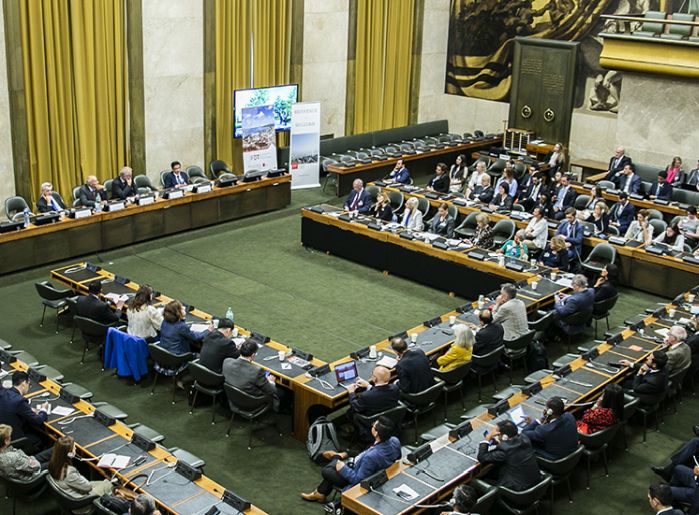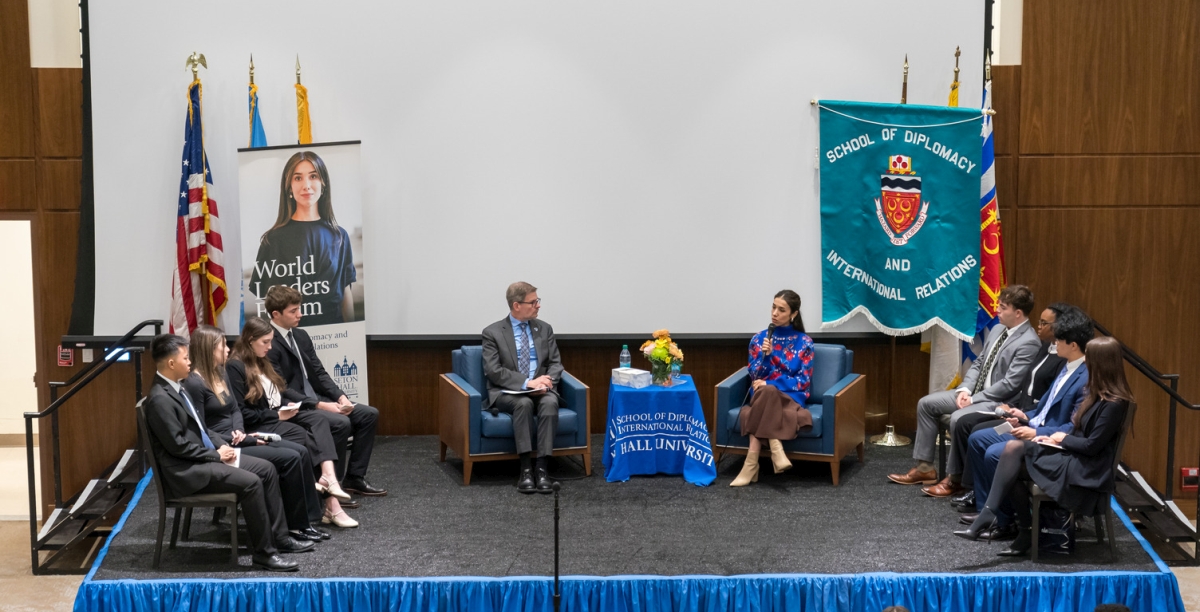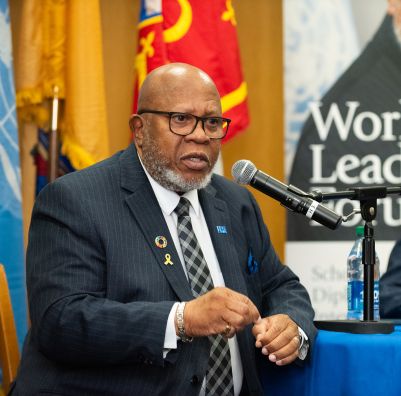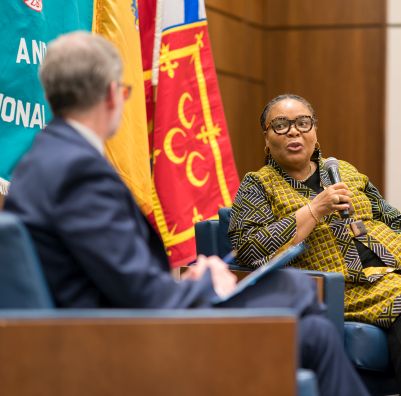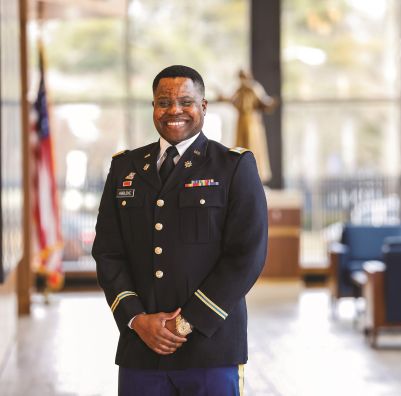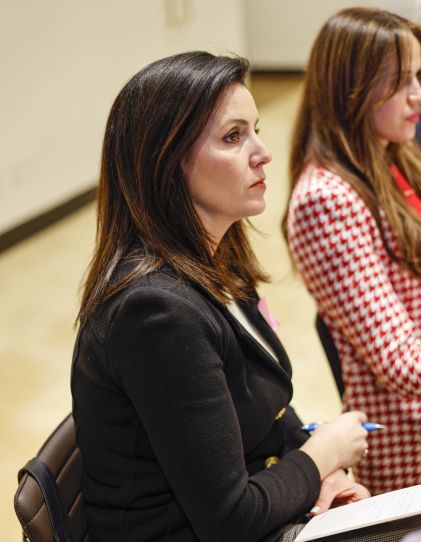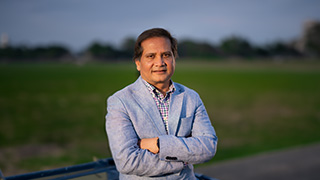School of Diplomacy and International Relations
This program is offered in partnership with the United Nations Institute for Training and Research (UNITAR) in Geneva. Prospective students with at least seven years of professional experience or a master’s degree and five years of experience are eligible to apply.
The degree is designed for mid-career professionals seeking to develop additional skills or credentials to advance in their careers. Practitioners explore contemporary diplomacy against the changing nature of world politics and investigate the complexities of relationships between countries. Through seven courses and six modules, students build upon their knowledge and skills in international security, policy analysis, negotiation and conflict management, monitoring and evaluation, while developing a functional and/or regional specialty.
This accelerated program allows for flexible pacing and can be completed full-time or part-time with both synchronous and asynchronous lessons. Students are immersed in the content through engaging online material, lectures, case studies, interactive sessions, groupwork, and stakeholder discussions.
Accreditation & Awards

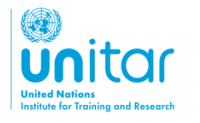

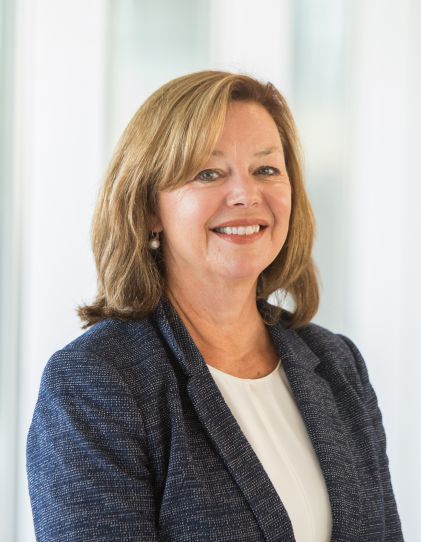
"Students come from all corners of the globe and bring very diverse backgrounds and experiences that enrich the learning environment."

Admissions Requirements
The school offers open enrollment with priority application deadlines. Applicants must have a minimum of seven years of professional experience to be considered. Applicants who hold a master’s degree and have five years of professional experience are also eligible. Priority scholarship consideration will be based on application deadlines. Applications received after the priority deadlines will be reviewed and considered on a case-by-case basis.
Deadlines
-
Fall First Priority
February 20
-
Fall Second Priority
March 31
-
Spring Priority
October 31
Curriculum Overview
The curriculum is customizable to meet your interests and career goals. Students choose four courses taken with the School of Diplomacy:
- Public International Law
- Art and Science of International Negotiation
- International Political Economy or Advanced Economic Aspects of International Relations
- Comparative Foreign Policy or Politics of Cultural and Ethnic Pluralism
UNITAR’s six modules include:
- Project Management
- Public-Private Partnerships and Business Diplomacy
- Mediation and Conflict Resolution
- Leadership in International Organizations
- Public and Cultural Diplomacy in a Multilateral World
- Diplomatic Communication
Three specialization courses allow students to explore topics concerning Africa; Global Health and Human Security; Global Negotiation and Conflict Management; International Economics and Development; International Law and Human Rights; and Post-Conflict State Reconstruction and Sustainability.
-
100
Graduate Student Body
-
40+
Countries Represented
-
20+
International Leaders Hosted
-
24
Annual Professional Development and Career Sessions
Career Opportunities
The degree and its related coursework are tools for diplomats assigned to Permanent Missions at the UN, representatives from NGOs, private sector employees with international interests, Peace Corps members and returned volunteers, military service members and veterans.
Our program offers the benefits of a professional school that bridges theory in the classroom with practical experiences in areas as varied as negotiation and economic development. You’ll gain a comprehensive education that will help you excel in today’s competitive workplace, wherever your work takes you. Our faculty are dedicated to developing their students' skills at navigating complex global issues and fostering a deep understanding of international dynamics.
As with the many accomplished alumni who have come before you, you will leave Seton Hall with a thorough knowledge of global affairs, a set of adaptable skills and leadership abilities essential to success in diplomacy, and the self-confidence to draw upon your education and advance your career. The diverse, practical experience you will gain here will help you have an impact.
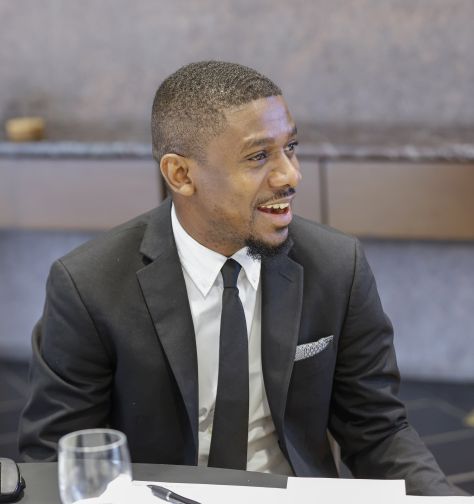
6-8%
Employment for international relations professionals is expected to grow through 2032 (BLS)
$106,182
Estimated average salary of an international affairs professional.
24
Annual Professional Development Workshops and Career Sessions
Our alumni work at the best organizations around the world.
Our Faculty and Students
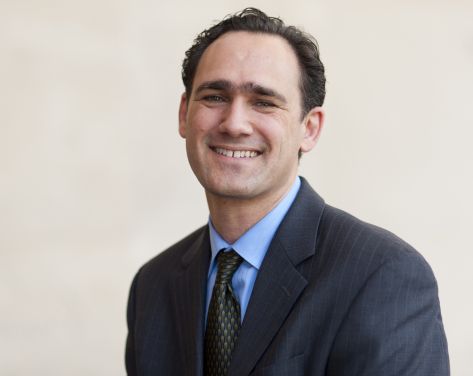
New Scholarly Work Looks at Participator Institutions, Digital Technologies and Democratic Crises
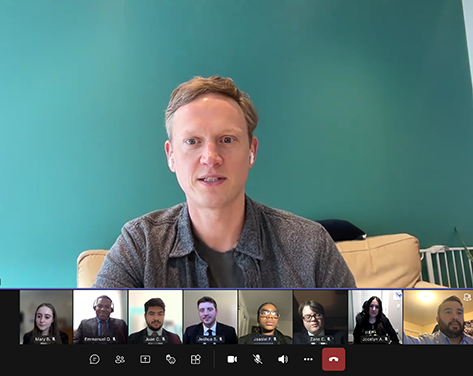
Former Obama press secretary and Pod Save America co-host, Tommy Vietor Speaks with Diplomacy Students
Scholarships & Financial Aid
Seton Hall University is committed to providing students with the most current information on how to finance your graduate degree. A graduate degree is within your reach – a variety of options can help you finance your degree including scholarships, federal aid, graduate assistantships, and more.
-
50%
Amount Scholarships Can Reduce Cost of Degree
Frequently Asked Questions
Does the School Offer Financial Aid?
Are Graduate Assistantships available?
Is the School Affiliated with External Scholarships?
See all Graduate Admissions FAQs
Additional Resources
Matching Scholarships
Diplomacy Graduate Programs
Register for an Information Session
Explore our Specializations
Request More Information
Office of Graduate Affairs
Loading M.S. Int'l Affairs and Diplomatic Practice Online ...
About Seton Hall


One of the country's leading Catholic Universities, Seton Hall University has been developing students in mind, heart and spirit since 1856.
Home to over 10,000 undergraduate and graduate students and offering more than 90 undergraduate programs and over 130 graduate programs, Seton Hall's academic excellence has been singled out for distinction by The Princeton Review, U.S. News & World Report and Bloomberg Businessweek.
Seton Hall's 58-acre campus in the quaint town of South Orange, New Jersey, is only 14 miles from New York City — offering students a wealth of employment, internship, cultural and entertainment opportunities. The University’s nationally recognized School of Law is located in nearby Newark, New Jersey. The Interprofessional Health Sciences (IHS) campus in the owns of Clifton and Nutley, New Jersey, houses the University’s College of Nursing and School of Health and Medical Sciences.
-
1856
Founded by James Roosevelt Bayley
-
14
Miles from New York City
-
90+
Career-Building Graduate Programs


